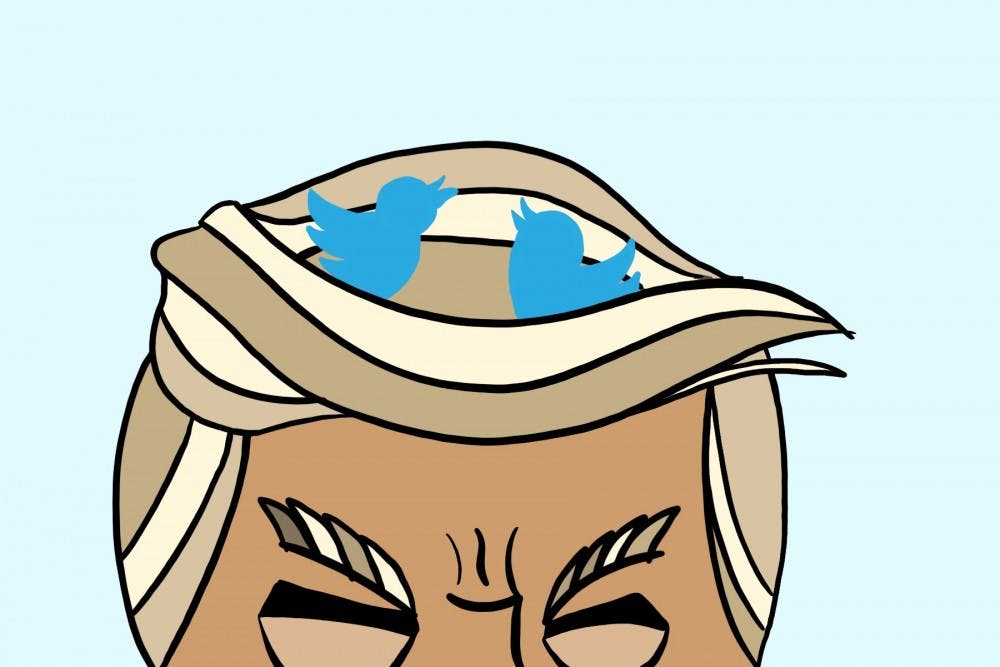Political discussion is often controversial. The act of conducting political discussion over social media is perhaps even more controversial, as it tends to quickly devolve into more volatile conversation.
Generally speaking, people should recognize that there are certain platforms that lend themselves toward political discussion, and there are others that simply do not.
Hazel Kwon, assistant professor at the Walter Cronkite School of Journalism and Mass Communication, said that political discussion on social media has both benefits and drawbacks.
“Politics on social media are not satisfactory with more political polarization and increasing incivility over the cyberspace,” Kwon said. “But it’s premature to say it’s wrong altogether. It’s polar to different voices, which is important for a democracy to take place.”
A few popular platforms for discussing politics include Twitter, Facebook, Reddit and YouTube, which all attract different demographics and tend to lend themselves towards different types of discussion.
“It’s hard to pick a specific platform and say one is better than others,” Kwon said. “The more important thing is what kind of technological affordances each platform provides, which is a very important determinant in which platform to use.”
With its 140-character limit, Twitter was supposedly designed for concision. However, anyone with an account and the right set of people to follow would know that the rise of threads and screenshots directs the fate of online discussion to a more lengthy path.
Still, even as Twitter begins to roll out an update featuring a doubled character limit, many argue that it is simply not possible to effectively discuss or debate complex issues over Twitter when the length of the argument is limited.
Given the popularity of Twitter with younger audiences, commonly with students in high school or college, it is easy to understand why it is one of the most frequently used platforms for expressing and arguing political opinions and personal differences.
Facebook, bearing no character limit and also being as public or private as the user desires, is another popular platform.
“The culture of Facebook still encourages the disclosure of a personal profile, which will change the way you discuss with others, compared to YouTube which can have anonymous comments and tends to be more emotional and also less civil,” Kwon said.
Online users often utilize their anonymity to shield their identity. With this protection, the need to censor opinions falters and these anonymous individuals easily become aggressive, allowing discussion to become personal despite the absence of a persona.
Beyond the use of social media as an outlet for political debate by everyday citizens as they form political opinions and learn more about the world, many politicians use social media to campaign and in day-to-day activities. This includes President Donald Trump, who has one of the fastest-growing political profiles.
“With politicians, their tone and phrasing have so much power in shaping the public mind,” Kwon said. “Ethically, the guidelines should be much more emphasized. Political discussions become less civil and more polarized and people in power have a responsibility in that for setting the emotion, framing the topic and choosing their words, but there’s no legal restriction. The ethics are up to them.”
While social media can be conducive to some types of political debate, students should be more conscientious of the way they are using social media in emotionally charged contexts and also of the audiences to which they are presenting.
Reach the columnist at kalbal@asu.edu or follow @KarishmaAlbal on Twitter.
Editor’s note: The opinions presented in this column are the author’s and do not imply any endorsement from The State Press or its editors.
Want to join the conversation? Send an email to opiniondesk.statepress@gmail.com. Keep letters under 500 words and be sure to include your university affiliation. Anonymity will not be granted.
Like The State Press on Facebook and follow @statepress on Twitter.




